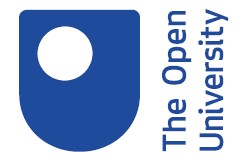The world’s leaders gathered in Glasgow this week to reassert their commitment to tackling climate change at the 26th UN Climate Change Conference of the Parties (COP26). Cranfield, as a global university with sustainability engrained in its educational and research offerings, was selected to present their Exploring Sustainable Futures game, which looks at imagining and delivering a world that is more sustainable by 2050.
The Exploring Sustainable Futures game is a role-playing, learning experience – played with students and executives – to explore concepts, skills and knowledge that are relevant to the sustainable business modules taught by the University’s Sustainability group. It was recognised by the Financial Times as being an example of best practice in teaching about sustainability.
Since 2018, Cranfield has been using a Scenario Exploration board game to help Masters students think about strategic decision making in the context of four different pathways towards a sustainable future by 2050. Players representing established businesses interact with players representing entrepreneurs, policy makers, civil society organizations and ‘the public voice’ as they all react to changes in economy, technology and society along these pathways. The ‘winners’ are judged not only by the amount of resources they have accumulated, but also by whether they have achieved their purpose, and the teams reflect on the nature of the world they have collectively created through their decisions.
The game concept was originally devised by the EU-Commission’s Joint Research Council (JCR), and this version of the game was developed in collaboration with Forum for the Future and the Academy of Business in Society (ABIS) as part of the EU-InnovatE project. Cranfield have since taken the lead in using and refining the game which has so far been played with over 200 students, with over 20 faculty and PhD students getting involved as ‘Game Hosts’ facilitating play at each table.
Cranfield is refining and improving the game with each use and have started to collect data on the effects on participants. Initial findings show that playing the game deepens students’ understanding of 1) the radically different, plausible futures that could unfold, 2) the role different actors play in societal change, 3) the interrelationship between business, society and the wider living world, 4) what might have to change in the world for sustainable development to happen and 5) the scope for business to both regenerate and degrade society.









